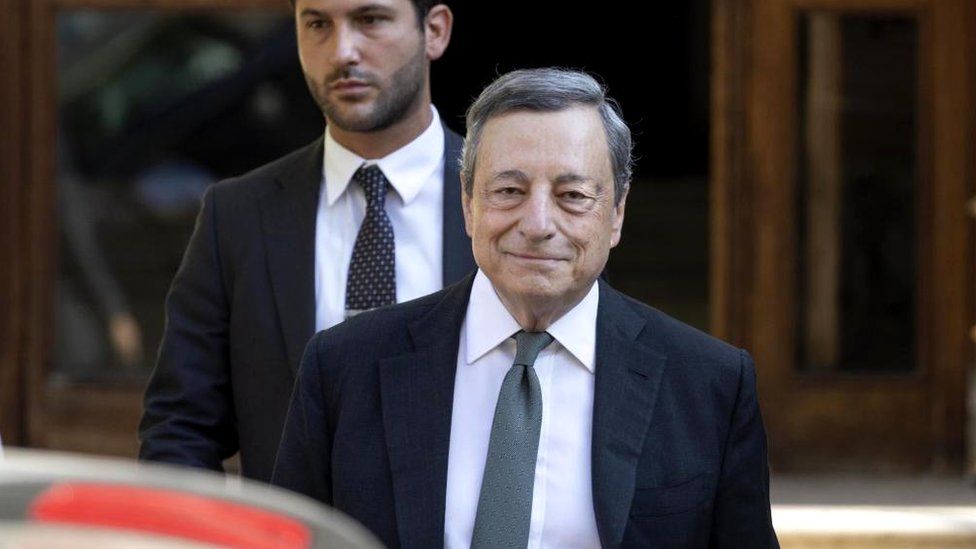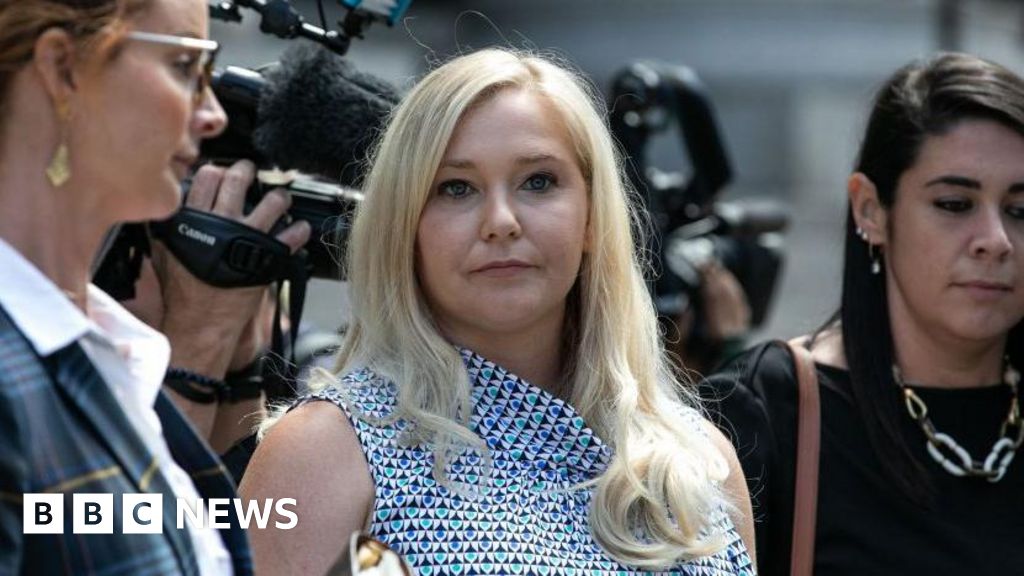ARTICLE AD BOX
By Mark Lowen & Paul Kirby
In Rome and London
 Image source, EPA
Image source, EPA
Mario Draghi has headed a unity government since February 2021
The Italian government could fall on Wednesday, in another dramatic day for Prime Minister Mario Draghi whose resignation last week was rejected by the president.
Mr Draghi, who has led a unity government for 17 months, will tell the Senate in the morning whether or not he is prepared to stay in office.
Hours later there will be a vote of confidence in the government.
Elections were already due to take place early next year.
The unelected ex-head of the European Central Bank was due to stand down at that point anyway. But a key member of his broad unity coalition, the populist Five Star movement, prompted his decision by pulling out of a confidence vote last Thursday over policy disagreements.
Amidst the war in Ukraine, the recovery from the Covid pandemic, and concerns about global energy prices, it is not the most opportune moment for a political crisis.
But Mr Draghi, 74, has indicated he won't govern without Five Star, and now a country that has seen almost 70 governments since World War Two will find out if its latest administration will fall too.
Image source, Getty Images
Image caption,Italian mayors, unions and protesters in Rome have called on Mr Draghi to stay in office
If he does resign, the EU's third-biggest economy could be plunged into early elections, delaying much-needed reforms as well as Italy's 2023 budget. Italy is the biggest recipient of grants and loans from the EU's enormous Covid recovery fund, but its next instalment is dependent on a list of changes.
Mr Draghi has made no comment since President Sergio Mattarella rejected his resignation and saw him again on Tuesday for a scheduled meeting.
However, 1,600 mayors as well as 250 business leaders and unions have called on him to stay, and ratings agency Fitch has warned that reforms would probably become more challenging without him.
Florence's centre-left mayor, Dario Nardella, said the big number of signatures by city leaders was unprecedented and indicated "very strong feeling" across the political spectrum for Mr Draghi not to resign.
As the technocrat prime minister has said nothing yet in public, it is not clear what will happen next. He met centre-left leader Enrico Letta ahead of the vote and later figures from the centre right too.
Regional affairs minister Mariastella Gelmini, of the Forza Italia party, said the centre right was backing Mr Draghi to stay in office "no ifs, no buts". However, her party and the far-right League said they were not prepared to continue in government with Five Star, casting further doubt on a revived unity coalition.
If the man dubbed "Super Mario" does follow through with his decision, President Mattarella could ask him to remain in office for weeks or even months, or he could appoint a caretaker leader such as Finance Minister Daniele Franco until next year.
Image source, Reuters
Image caption,Giorgia Meloni and other leaders on the right have an early election in their sights
Opinion polls suggest Italy's next prime minister would come from the far right. Giorgia Meloni, leader of Brothers of Italy, has already called for an autumn election, highlighting a recent poll that gave her party 23.8% of the vote. "This explains why the left is so scared of elections," she said.
Unlike the rest of the right, Ms Meloni is not part of the Draghi government, but the League and Forza Italia would be natural partners with her in any future coalition.
In the last election in 2018, Five Star was the biggest party, but it has been beset by internal rows and defections and is performing poorly in the polls.
Its leader, former Prime Minister Giuseppe Conte, triggered the crisis last week, opposing a €23bn (£19.5bn) package of economic aid for families and businesses, arguing Mr Draghi was not doing enough to tackle the cost of living crisis. It also cited opposition to a planned waste incinerator in Rome.
But many observers believe Five Star was simply trying to regain popularity and that by jockeying for relevance it was risking Italy's political future.

 2 years ago
34
2 years ago
34








 English (US) ·
English (US) ·